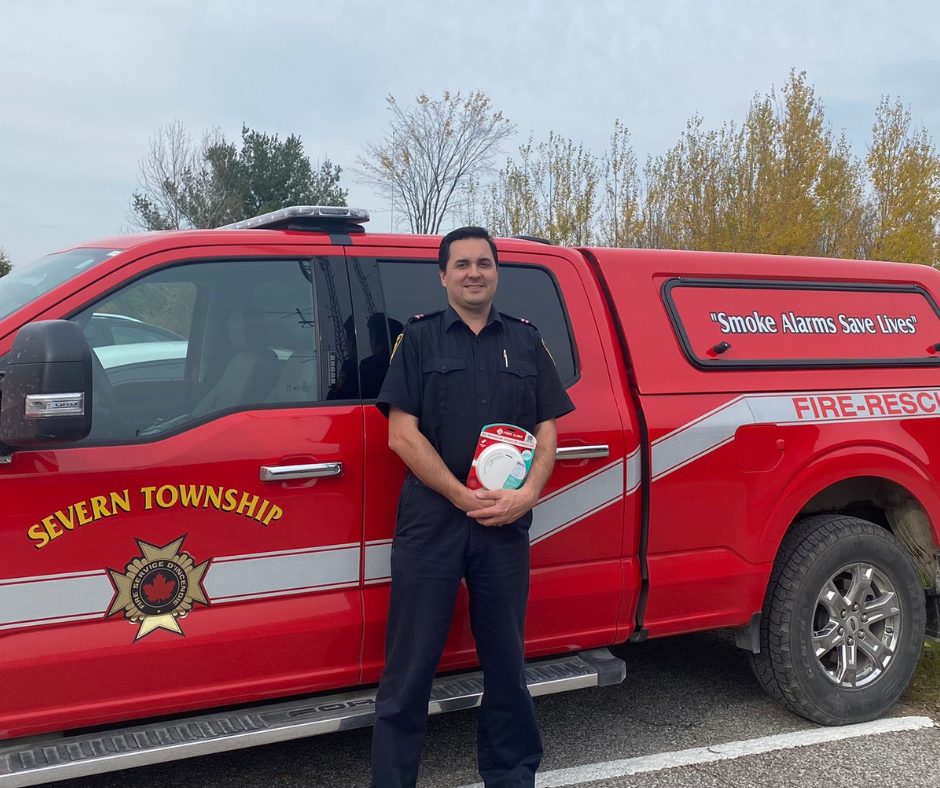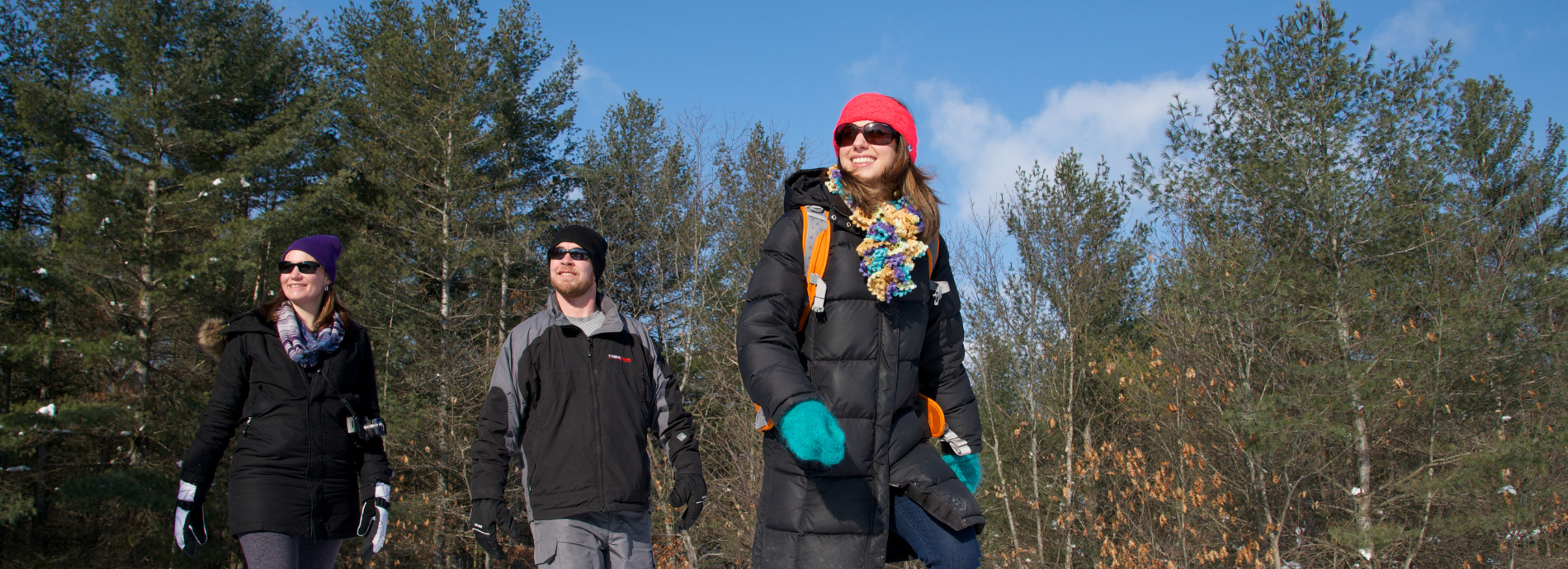Severn launches door-to-door carbon monoxide awareness campaign

Initiative aims to engage residents in conversations about carbon monoxide safety
Severn's Fire Prevention Officer will be visiting properties in our community to talk about the importance of carbon monoxide (CO) alarms starting November 1.
Ontario’s Carbon Monoxide Awareness Week runs from November 1 to 7, and Severn Fire and Emergency Services is reminding our community about the steps you can take to help protect you and your family from CO exposure.
Carbon monoxide alarms are required in all Ontario homes that have a fuel-burning (wood, oil, natural gas, propane) appliance, fireplace, or an attached garage. This includes indoor appliances that produce carbon monoxide such as furnaces, water heaters, stoves, dryers, and portable heaters. All fuel-burning appliances should be inspected regularly by a certified technician to check for leaks and to ensure there is no build-up of CO. Generators, barbeques, propane heaters, and other appliances that generate dangerous exhaust should always be used following the manufacturer's instructions.
"In Ontario, more than 65% of injuries and deaths from CO occur in the home. We want to make sure everyone is safe from CO. Have all fuel-burning appliances inspected by a registered contractor. Visit COSafety.ca to find a registered contractor near you."
—Ritch Lowell, Director of Fire and Emergency Services / Fire Chief
Symptoms of exposure to carbon monoxide may be similar to the flu but without the elevated temperature. Known as the “silent killer,” exposure to carbon monoxide can cause headaches, nausea, dizziness, breathlessness, collapse, loss of consciousness and death.
"You must have a working CO alarm adjacent to each sleeping area of the home if your home has a fuel-burning appliance, a fireplace or an attached garage. For added protection, install a carbon monoxide alarm on every storey of the home according to the manufacturer’s instructions."
—Jake Hawkins, Fire Prevention Officer
If you live in a condominium or apartment building with a service room, CO alarms must be installed in the service room and outside of each sleeping area, and below and beside the service room. In condominium or apartment buildings that have a garage, CO alarms must be installed adjacent to each sleeping area of all homes above, below, and beside the garage. If you rent, the property owner is responsible by law for installing alarms and you must inform them if the alarm is disconnected or not operating properly.
Prevent CO in your home
Take these steps to help reduce your risk of exposure to carbon monoxide:
- check that all outside appliance vents are not blocked
- ensure fuel-burning appliances, chimneys and vents are cleaned and inspected annually (visit COSafety.ca to find a registered contractor near you)
- gas and charcoal barbeques should only be used outside, away from all doors, windows, vents, and other building openings; never use barbeques inside garages, even if the garage doors are open; remaining charcoal should be completed extinguished and cool before storing the appliance in a garage
- heating, ventilation, and air conditioning systems should be serviced regularly to ensure fresh air is properly entering the home and exhausted gases are properly exiting; if the air is not properly being exchanged, any CO-producing appliances within the home could cause a buildup of CO over time
- never run a vehicle or other fueled engine or motor inside a garage, even if the garage doors are open; always remove a vehicle from the garage immediately after starting it
- never use the stove or oven to heat your home
- open the flue before using a fireplace for adequate ventilation
- portable fuel-burning generators should only be used outdoors in well-ventilated areas away from windows, doors, vents, and other building openings and according to manufacturer’s instructions
- when cleaning wood burning appliances, coals and ash should be immediately removed from the home as they continue to generate CO while hot
Know the sound of your CO alarm
Your CO alarm sounds different than your smoke alarm. Test both alarms monthly and make sure everyone in your home knows the difference between the two alarm sounds. Don’t be confused by the sound of your CO alarm’s low-battery warning; follow your CO alarm manufacturer’s instructions so you know the difference between the low-battery warning, the “end-of-life” warning, and the alarm alerting you to the presence of CO in your home.
If your CO alarm sounds, and you or other occupants suffer from symptoms of CO poisoning (flu-like symptoms such as headaches, nausea, dizziness, as well as confusion, drowsiness, loss of consciousness), get everyone out of the home immediately; then call 9-1-1 or your local emergency services number from outside the building.
If your CO alarm sounds and no one is suffering from symptoms of CO poisoning, check to see if the battery needs replacing, or the alarm has reached its "end-of-life" before calling 9-1-1.
Please contact Severn's Fire Prevention Officer to request further fire prevention and carbon monoxide safety information, or to book a presentation or visit with your school, business, or group.
Staff contact
Jake Hawkins
Fire Prevention Officer
Phone: 705-325-2315 x248
Email Jake
About Severn Fire and Emergency Services
Township of Severn Fire and Emergency Services provides a range of fire and emergency services to protect life, property, and the environment. We do this through education, prevention, investigation, training, rescue, fire suppression, and basic life support services. Severn Fire relies on trained members from throughout our community who serve as volunteer firefighters.












